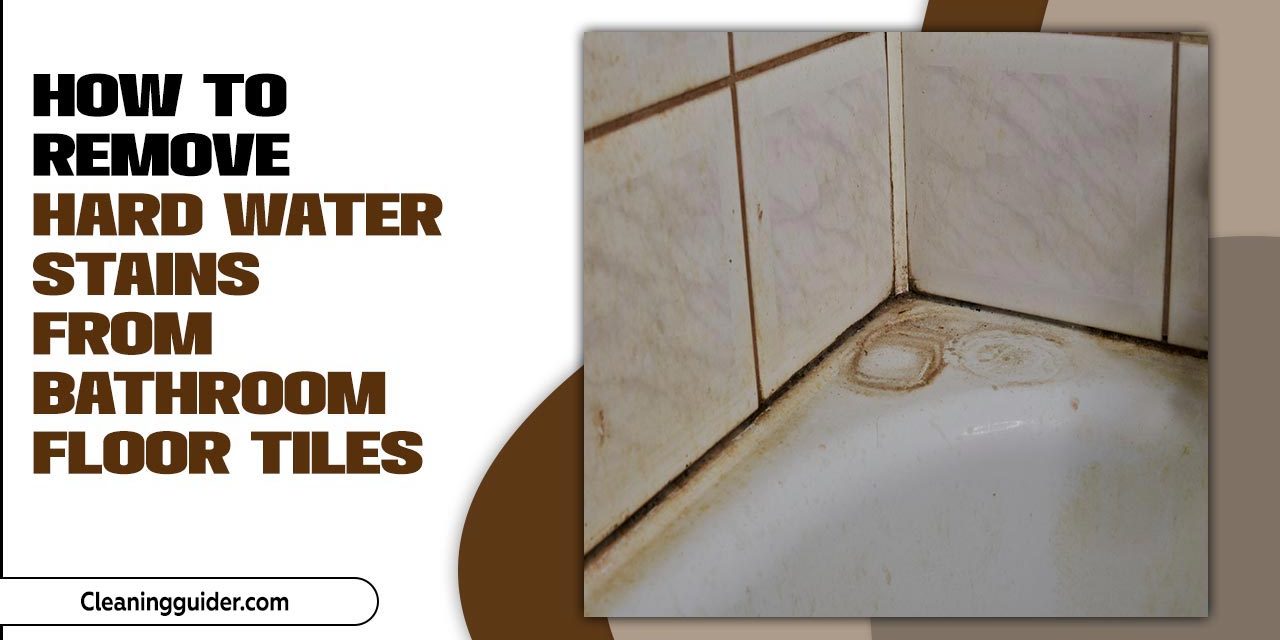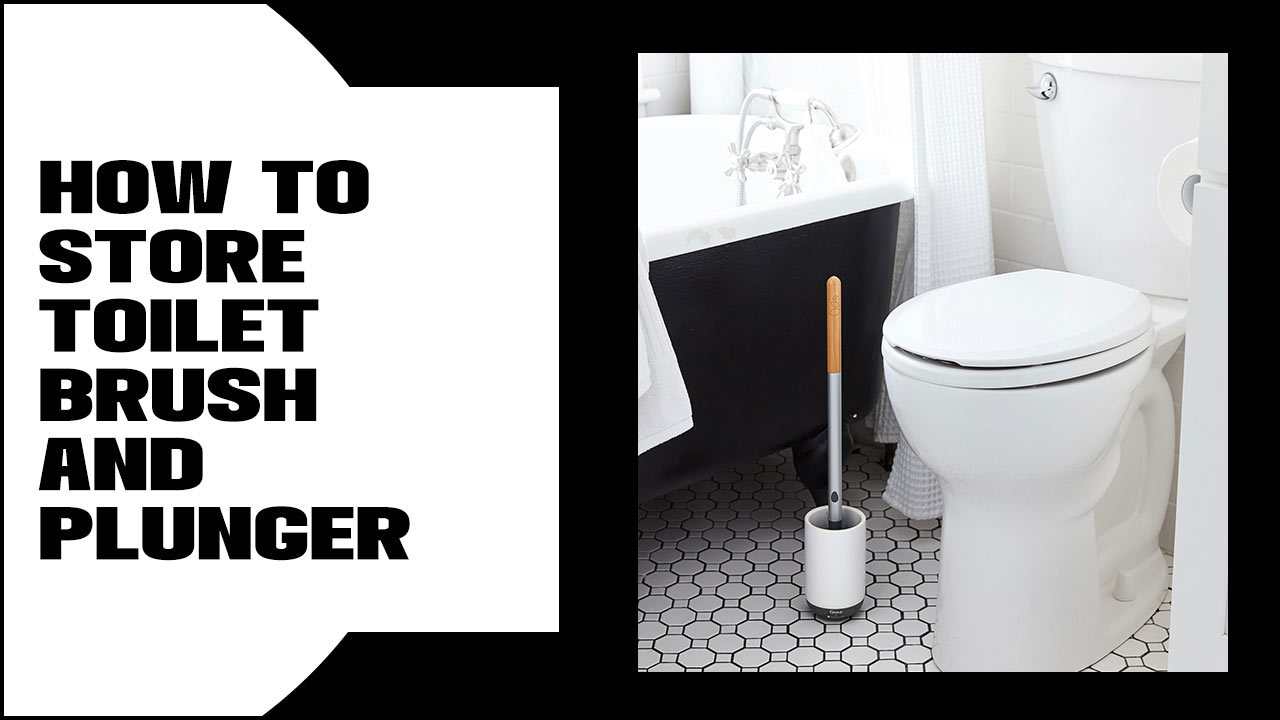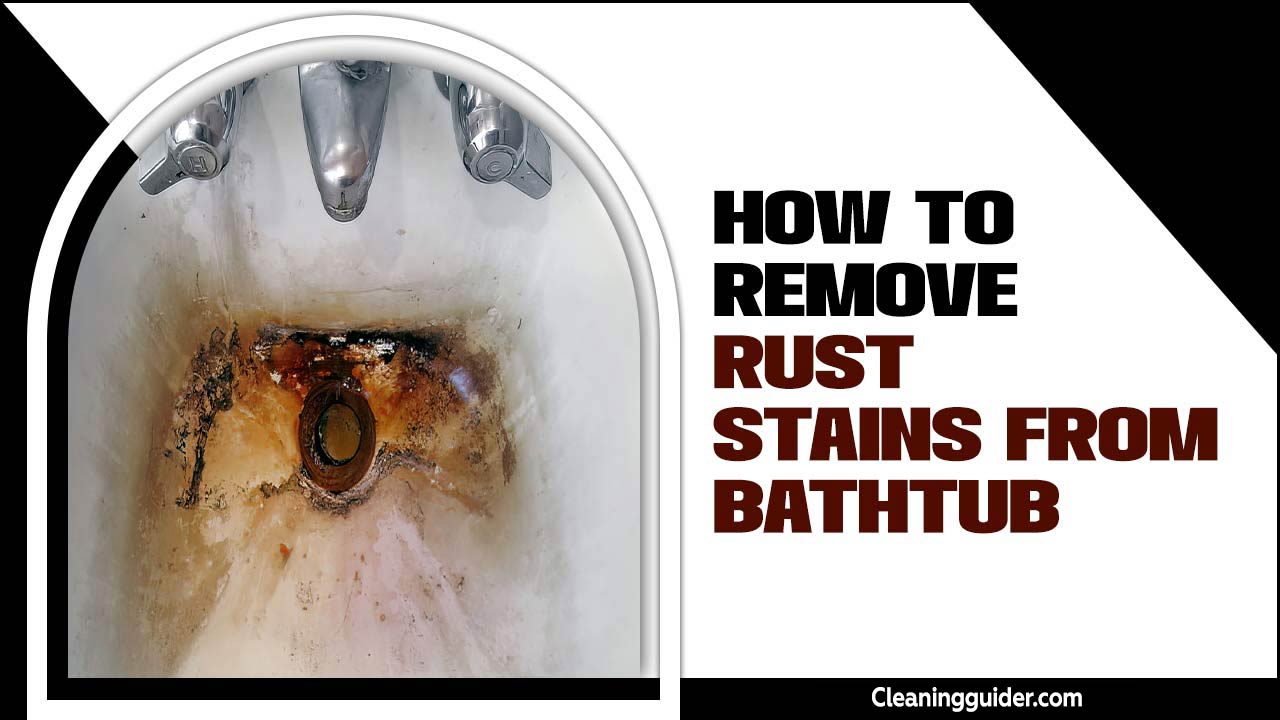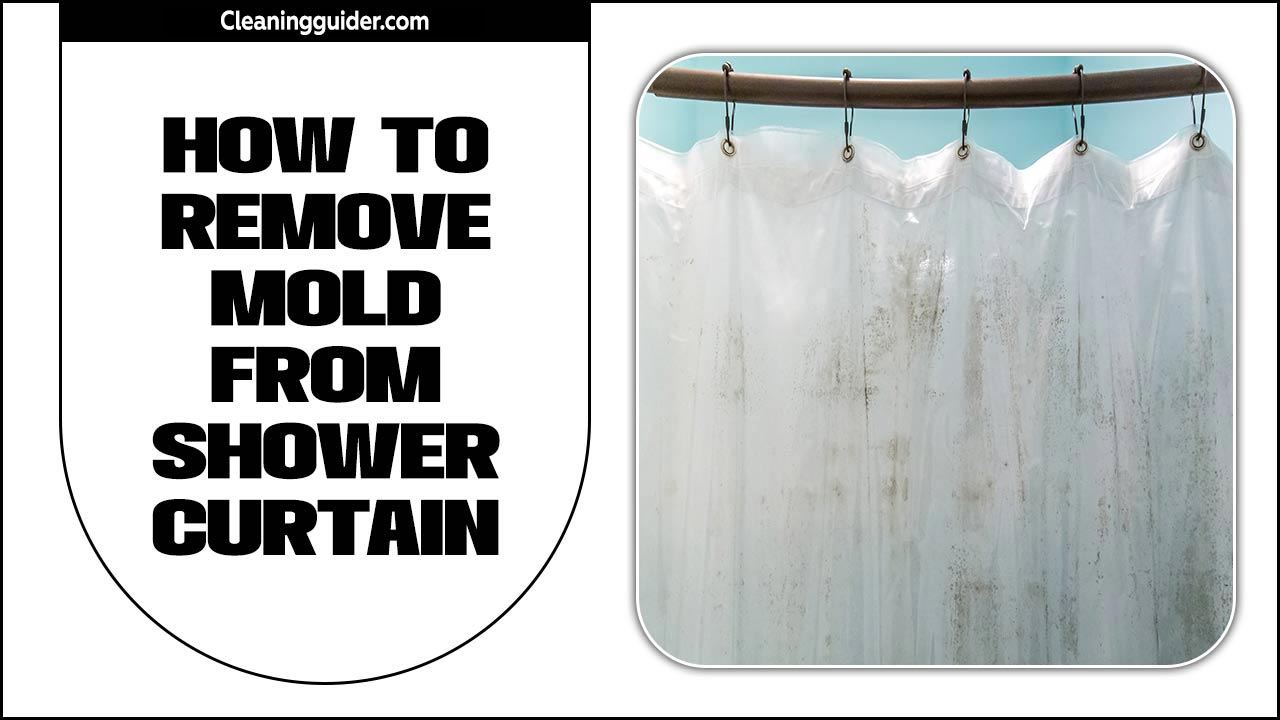Hard water stains on bathroom tiles can be a major eyesore and make your bathroom look dirty and uninviting. These stains are caused by excess minerals, such as calcium and magnesium, in your water supply.
Over time, they can build up and create a stubborn layer of discoloration on your floor tiles. These stains make your bathroom look less appealing but can also be difficult to remove if not tackled properly.
However, fear not; some simple yet effective methods can help remove those hard water stains and restore shine to your bathroom floor tiles. We will provide you with a step on how to remove hard water stains from bathroom floor tiles. By following these tips and techniques, you can say goodbye to unsightly stains and keep your bathroom looking clean and pristine.
Whether you are a homeowner or a commercial property manager, this article will provide the necessary information and solutions to tackle hard water stains with ease and maintain the overall appearance of your bathroom.
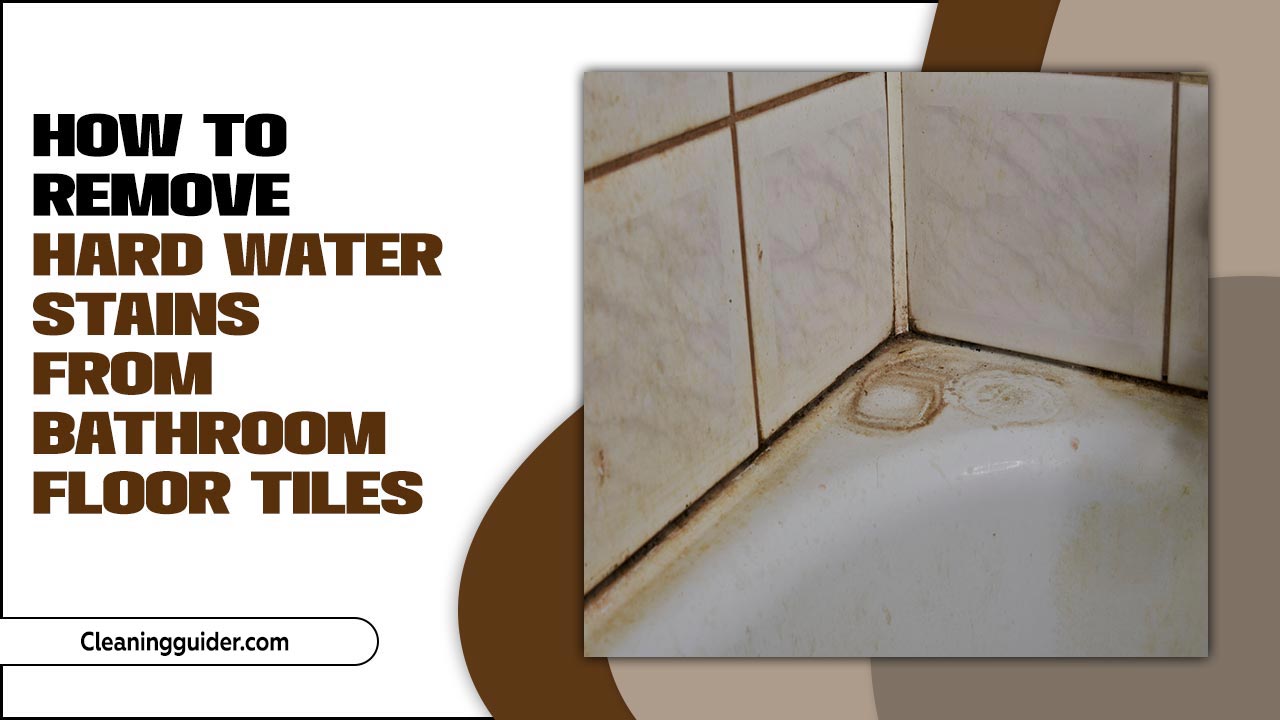
What Causes Hard Water Stains?
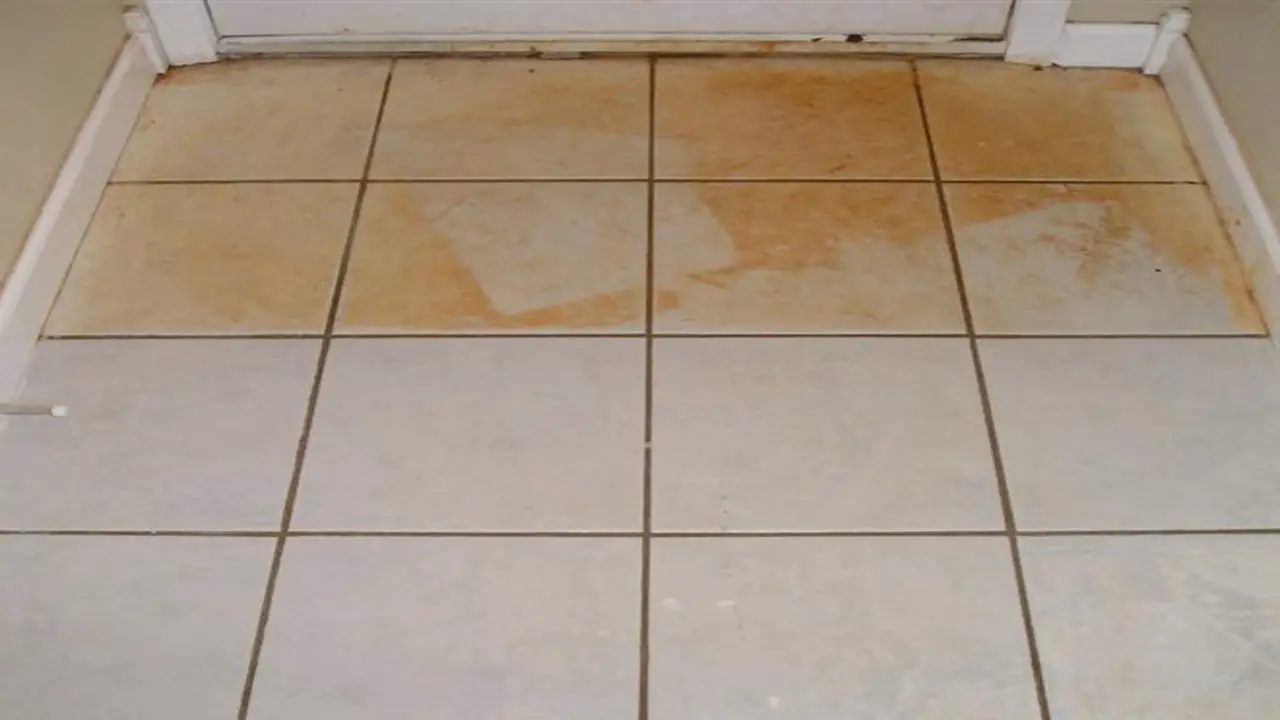
Hard water stains on bathroom floor tiles can be a frustrating problem. Understanding what causes these stains can help you prevent them in the future. By understanding these causes, you can take steps to prevent and remove hard water stains from your bathroom floor tiles effectively. Here are some common causes of hard water stains:
- High Mineral Content: Hard water contains high levels of minerals, such as calcium and magnesium. When this water evaporates on your bathroom floor tiles, it leaves behind mineral deposits that can cause stains.
- Lack Of Regular Cleaning: If you don’t regularly clean your bathroom floor tiles, hard water stains can build up over time. The longer these stains sit on the surface, the more difficult they can be to remove.
- Incorrect Cleaning Products: Using the wrong cleaning products can worsen hard water stains. Acid-based cleaners, for example, can react with the minerals in hard water and create even more stubborn stains.
- Hard Water Residue: Even after you’ve cleaned your bathroom floor tiles, there may still be residual hard water that hasn’t been fully removed. This residue can contribute to the formation of new stains.
How To Remove Hard Water Stains From Bathroom Floor Tiles? – 8 Easy Ways
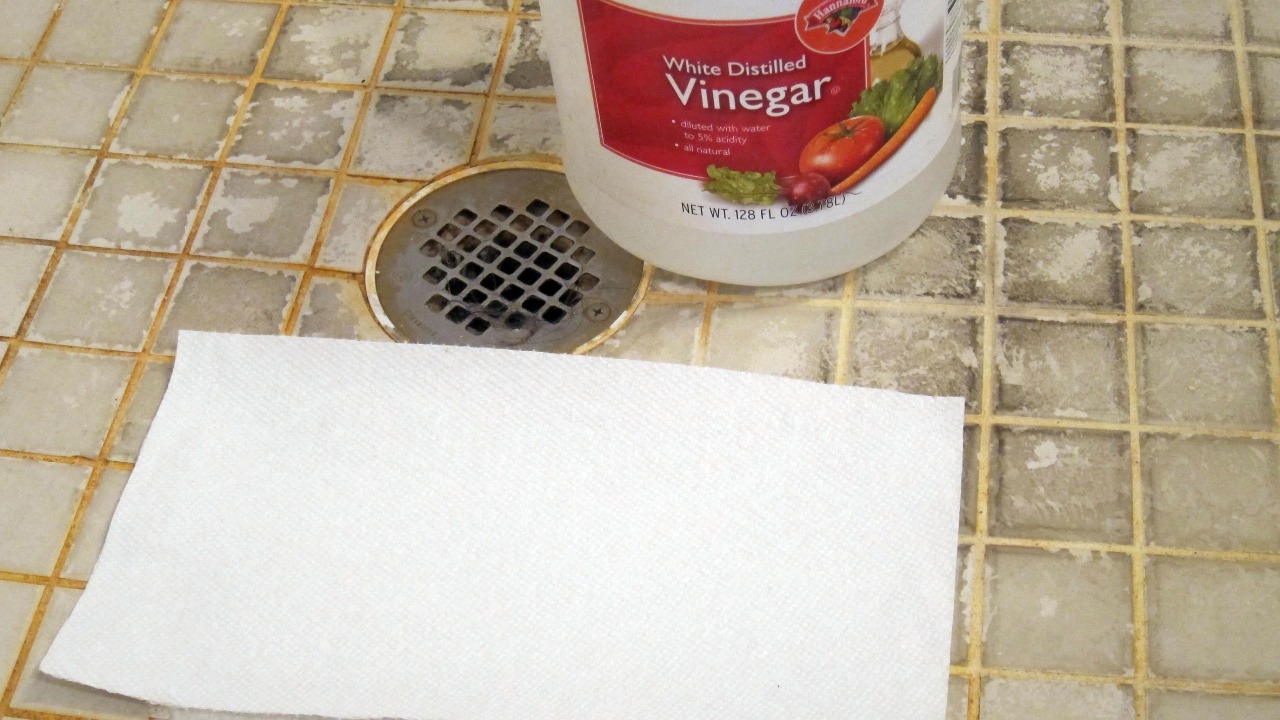
Using a water softener can prevent and remove hard water stains. Vinegar is a natural and effective solution. Salt acts as a gentle abrasive to scrub away stains. A brush with soft bristles is perfect for stubborn stains. Baking soda is versatile for cleaning tiles. Commercial cleaners designed for hard water stains work well. Steam cleaners penetrate the surface effectively. Here are 8 ways to How to Remove Hard Water Stains from Bathroom Floor Tiles:
1.Use A Water Softener
Installing a water softener is one of the best ways to prevent and eliminate hard water stains on bathroom tiles. You can reduce the mineral deposits that cause unsightly stains by softening the water.
Not only does a water softener help maintain the cleanliness and appearance of your bathroom floor tiles, but it also eliminates the need for harsh cleaning products. Regular use of a water softener can ensure that your bathroom floor tiles remain beautiful and free from hard water stains. It’s a simple and effective solution for combating this common problem.
2.Try Vinegar
One of the best ways to remove hard water stains from bathroom floor tiles is to try vinegar. Vinegar is a natural and affordable solution that effectively breaks down mineral deposits and eliminates hard water stains. Mixing vinegar with water allows you to create a gentle cleaning solution that is safe to use on your tiles.
Regularly using vinegar can not only remove existing stains but also prevent the buildup of hard water stains in the future. It’s a non-toxic option that can help keep your bathroom floor tiles clean and free from unsightly water spots.
3.Apply Salt
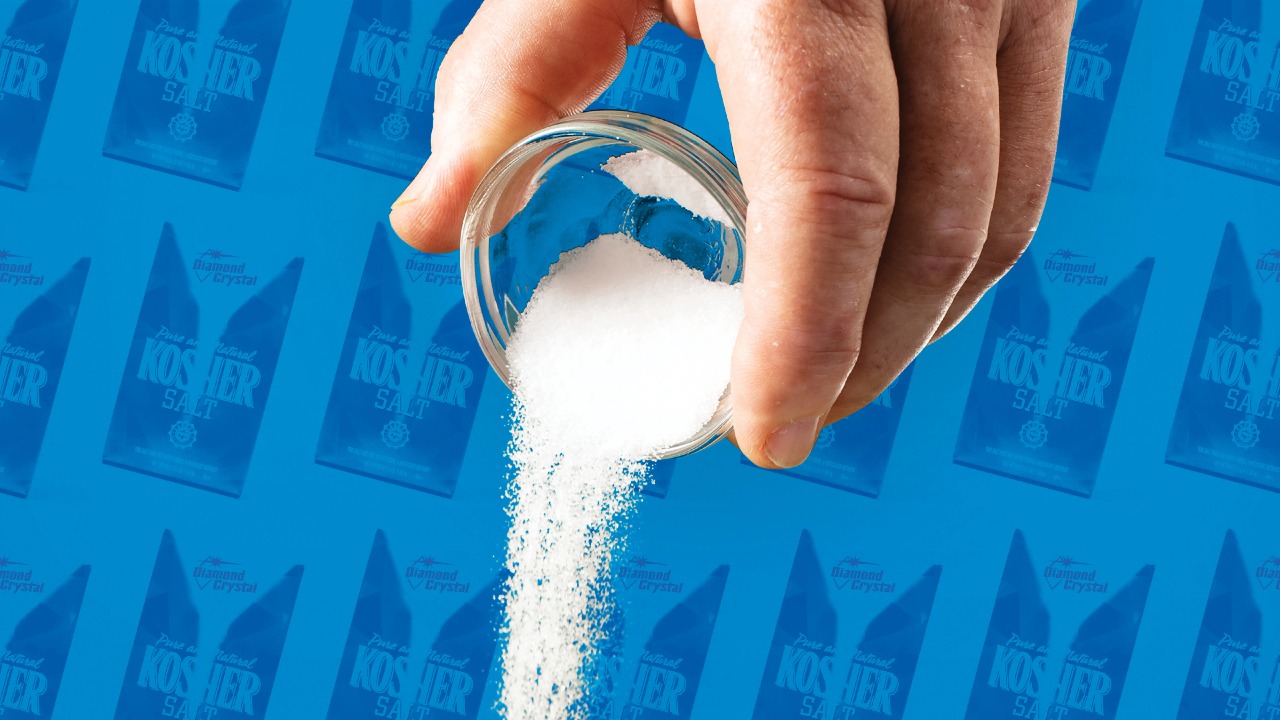
You can try applying salt to remove hard water stains from bathroom floor tiles. Salt acts as an abrasive that helps scrub away those stubborn stains. Simply sprinkle salt directly onto the affected areas and use a brush to scrub gently. The coarse texture of salt works to break down mineral deposits and lift the hard water stains. It is a natural and inexpensive option for tackling this common problem. After applying salt, rinse the area thoroughly to remove any residue.
4.Scrub With A Brush
Scrubbing with a soft-bristled brush is one of the best ways to remove hard water stains from bathroom floor tiles. The gentle scrubbing motion helps to loosen and lift the stubborn stains, allowing them to be easily washed away.
Choosing a brush specifically designed for use on delicate surfaces like bathroom floor tiles is important to avoid any potential damage. Regularly scrubbing with a brush can also help prevent the buildup of hard water stains in the future. After scrubbing, rinse the area well with hot water to remove loosened debris.
5.Use Baking Soda
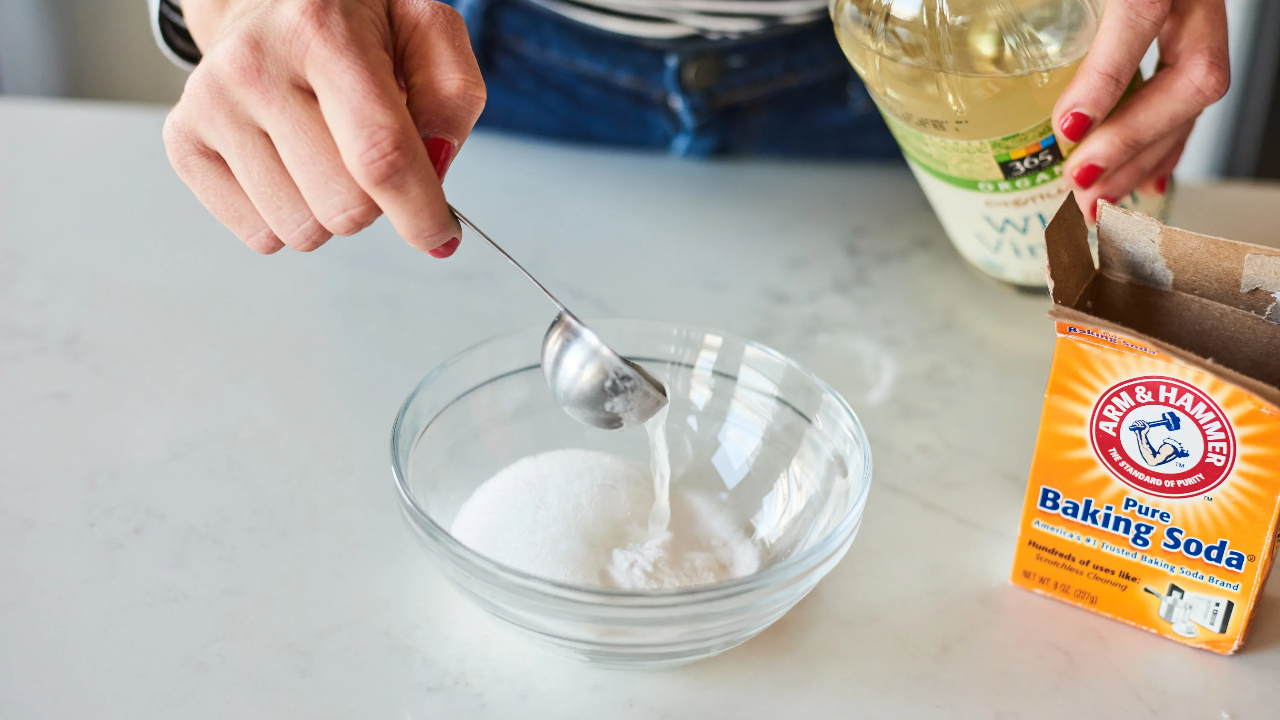
Baking soda, a versatile cleaning agent, is one of the best ways to remove hard water stains from bathroom tiles. To use baking soda, mix a paste with water and apply it to the stains. Allow the baking soda paste to sit briefly before scrubbing with a soft nylon brush. Baking soda is a gentle abrasive, effectively removing tough hard water stains. After scrubbing, rinse the area thoroughly to ensure all residue is removed. Finally, dry the floor tiles with paper towels to prevent water spots.
6.Use A Commercial Cleaner
A commercial cleaner can be a highly effective solution when removing hard water stains from bathroom floor tiles. These cleaners are designed to tackle tough stains caused by mineral buildup and water spots. By following the instructions on the label, you can ensure that you’re using the cleaner correctly for optimal results.
Commercial cleaners often contain ingredients that break down mineral deposits and remove hard water stains with minimal effort. This saves you time and removes the extra effort required when using household cleaning products. Just make sure to choose a commercial cleaner that is safe for use on your specific type of bathroom floor tiles.
7.Use A Steam Cleaner
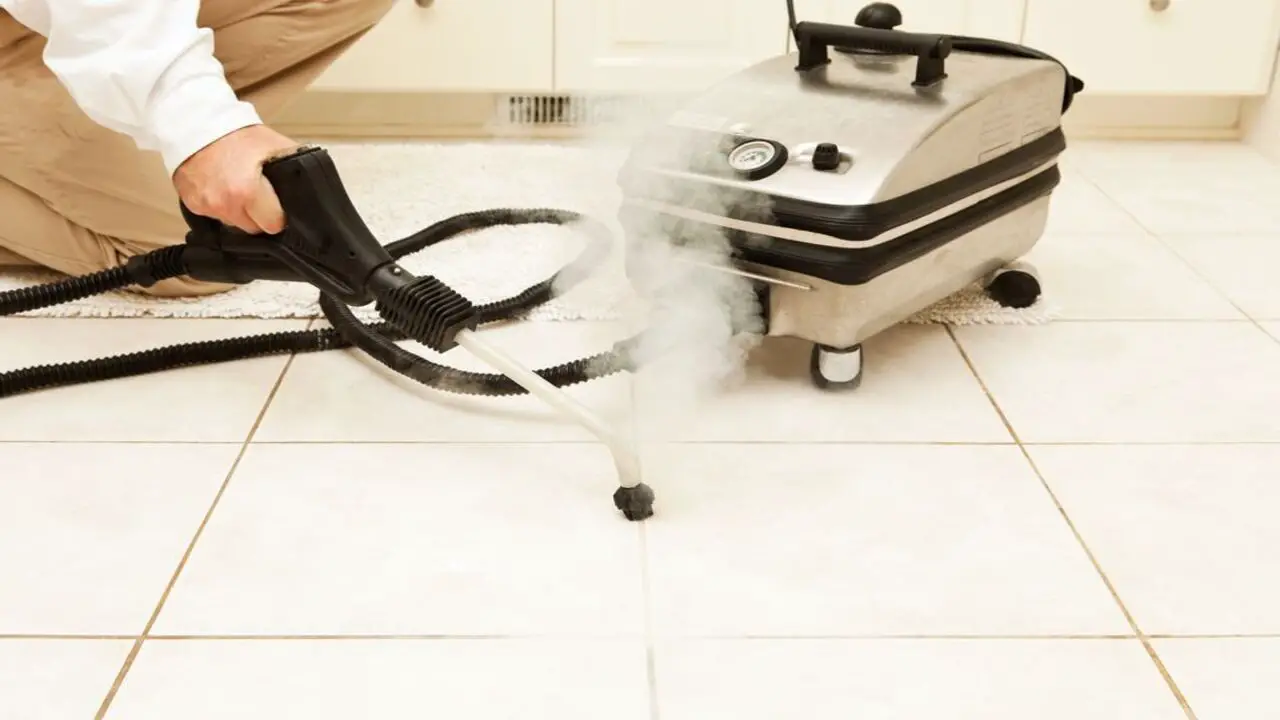
Steam cleaners are an excellent option for removing hard water stains from bathroom tiles. They can effectively penetrate the surface of the tiles and break down mineral deposits, making it easier to lift stubborn stains. One of the advantages of using a steam cleaner is that it is a chemical-free method for tackling hard water stains.
However, following the manufacturer’s instructions when using a steam cleaner is important to ensure safe and effective results. Regular use of a steam cleaner can also help prevent the buildup of hard water stains in the future.
8.Use A Pressure Washer
Pressure washers have proven to be a valuable tool in the fight against hard water stains on bathroom floor tiles. By harnessing the power of high-pressure water streams, pressure washers effectively blast away mineral deposits and stubborn water spots.
However, it’s important to exercise caution when using a pressure washer on delicate surfaces like bathroom floor tiles. Adjusting the pressure settings to a lower setting will help prevent any potential damage to the tiles. After using a pressure washer, thoroughly rinse the area to remove any loosened debris, resulting in fresh and clean tiles.
Tips For Keeping Your Bathroom Floor Tiles Clean
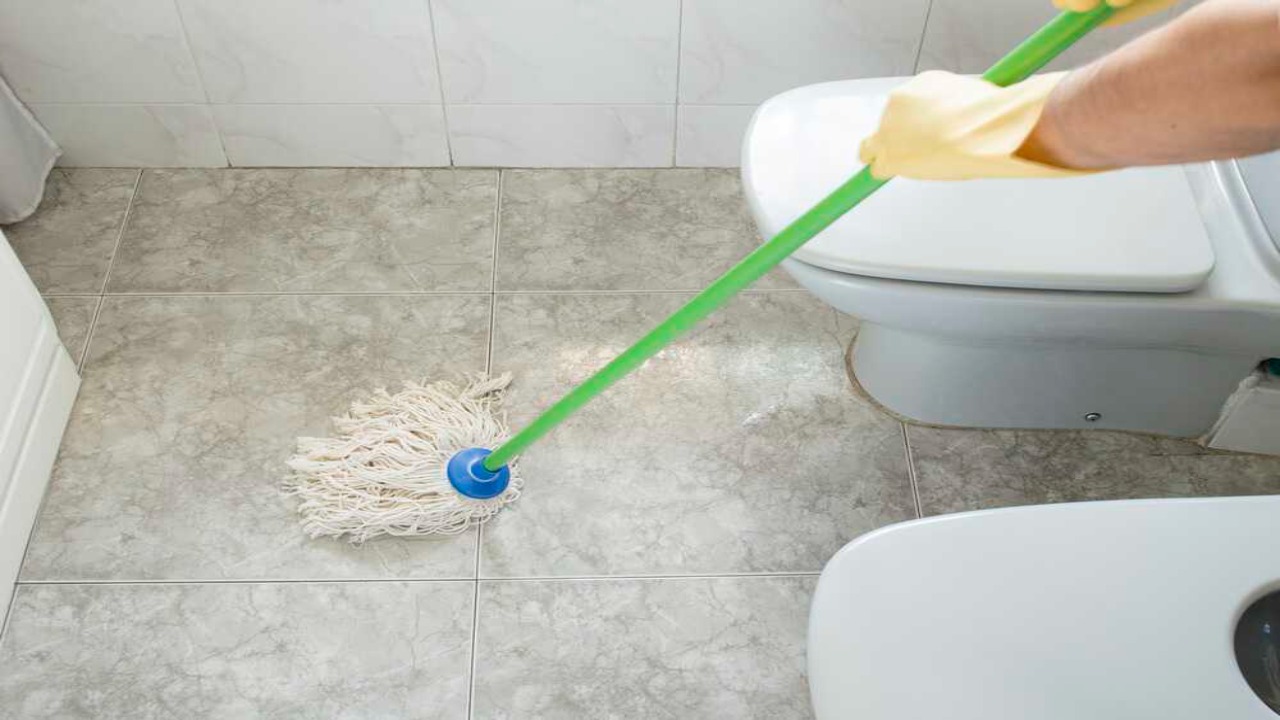
Keeping your bathroom floor tiles clean can be challenging, especially when dealing with hard water stains. By following these tips and incorporating them into your regular cleaning routine, you can effectively remove hard water stains from your bathroom floor tiles and maintain their cleanliness and appearance over time. Here are some tips to help you keep your bathroom floor tiles looking their best:
- Regular Cleaning: Make it a habit to regularly clean your bathroom floor tiles using a mild detergent or tile cleaner. This will help prevent the buildup of dirt and grime that can contribute to hard water stains.
- Vinegar Solution: If you notice hard water stains on your bathroom floor tiles, try using a vinegar solution to remove them. Mix white vinegar and water in a spray bottle and spray the solution onto the stained areas. Let it sit for a few minutes, then scrub the stains with a soft brush or sponge. Rinse thoroughly with water.
- Baking Soda Paste: For more stubborn hard water stains, you can make a paste using baking soda and water. Apply the paste to the stained areas and let it sit for about 15 minutes. Scrub the stains gently with a brush or sponge, then rinse off with water.
- Preventive Measures: To avoid future hard water stains, consider installing a water softener or using distilled water for cleaning your bathroom floor tiles. Additionally, wiping down the tiles after each use can help prevent mineral deposits from forming.
Conclusion
To sum up, hard water stains on bathroom floor tiles can be stubborn and frustrating to remove. However, with the right techniques and products, you can effectively get rid of them. Remember to use a water softener to prevent future stains from forming.
Vinegar, salt, baking soda, and commercial cleaners are all effective options for removing hard water stains. Scrubbing with a brush and using a steam cleaner or pressure washer can also help tackle tough stains.
Additionally, to keep your bathroom floor tiles clean and prevent future stains, regularly clean and dry the tiles, avoid using harsh chemicals, and maintain a proper cleaning routine. These tips allow you to enjoy sparkling clean bathroom floor tiles free from hard water stains. We hope you understand how to remove hard water stains from bathroom floor tiles.
Frequently Asked Questions
1.How Do I Remove Calcium Deposits From My Bathroom Floor?
Ans: To remove calcium deposits from your bathroom floor, combine vinegar and water. Apply it to the affected area and let it sit for 30 minutes. Then, scrub with a brush or sponge. For tougher stains, add baking soda to create a paste. Rinse thoroughly with clean water.
2.How Do You Remove Calcium Deposits From Tile Floors?
Ans: To remove calcium deposits from tile floors, combine vinegar and water. Apply the solution to the affected area and let it sit for a few minutes. Scrub the stains with a brush. For stubborn deposits, use a commercial cleaner designed for calcium removal. Remember to rinse the floor thoroughly after cleaning.
3.How Do You Remove White Scale From Bathroom Tiles?
Ans: White scale on bathroom tiles is often caused by hard water stains. One effective way to remove these stains is by using vinegar and baking soda. Apply the mixture, let it sit for 10-15 minutes, then scrub with a brush or sponge. Rinse thoroughly and repeat if needed.
4.How Do You Remove Thick Limescale From Bathroom Tiles?
Ans: To remove thick limescale from bathroom tiles, create a solution of equal water and white vinegar. Apply the mixture to the affected area and let it sit for 5-10 minutes. Scrub the limescale away using a stiff-bristled brush or scrubbing pad. Rinse the tiles with water and dry them thoroughly.
5.How To Clean Your Bathroom Tiles & Floor From Hard Water Stains?
Ans: To clean your bathroom tiles and floor from hard water stains, wipe them down with water and vinegar. For tougher stains, apply a paste of baking soda and water to the stain, and let it sit before scrubbing. Rinse thoroughly and dry with a towel.

